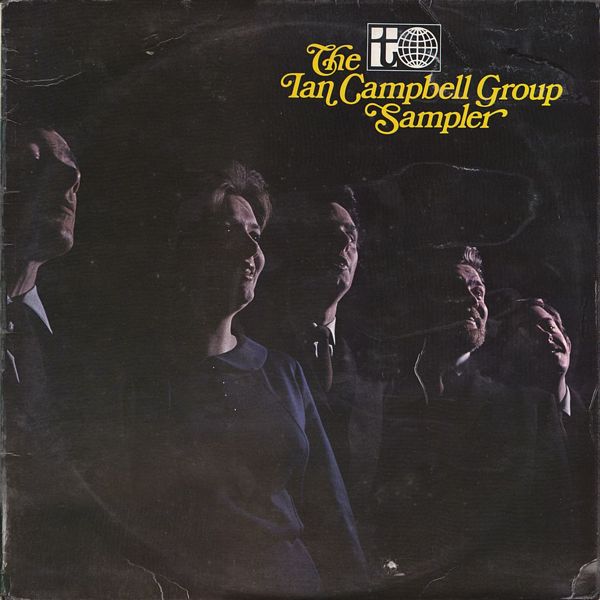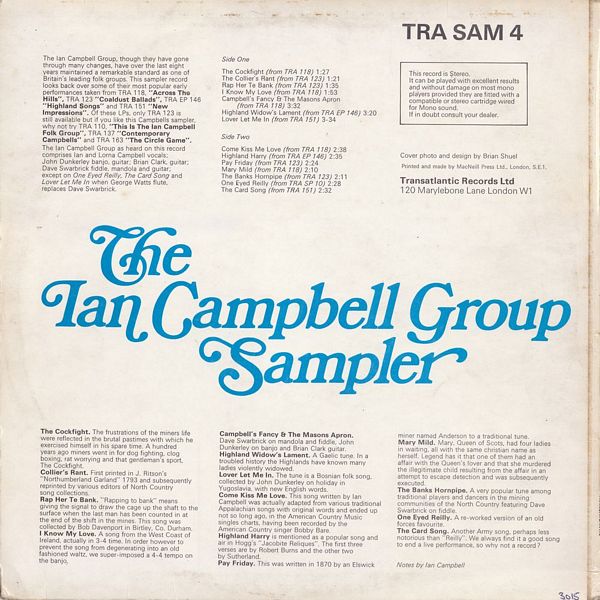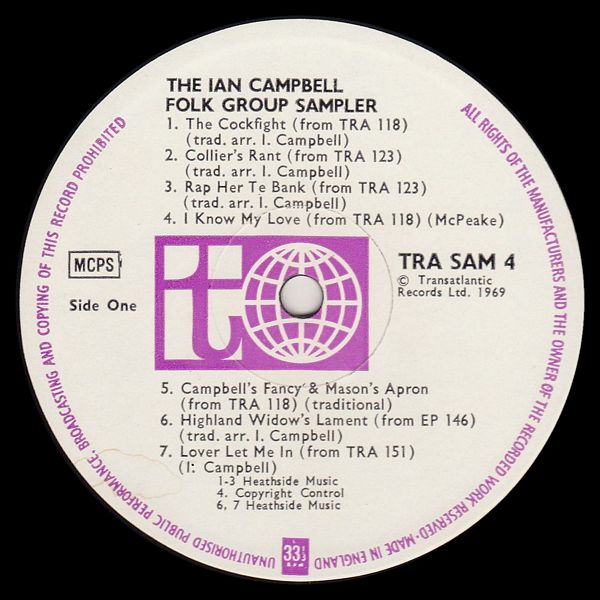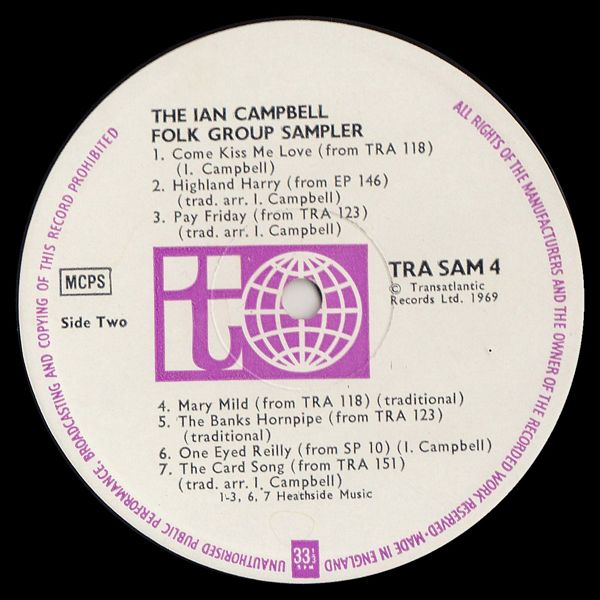

 |


 |
Sleeve Notes
The Ian Campbell Group, though they have gone through many changes, have over the last eight years maintained a remarkable standard as one of Britain's leading folk groups. This sampler record looks back over some of their most popular early performances taken from TRA 118, Across The Hills, TRA 123 Coaldust Ballads, TRA EP 146 Highland Songs and TRA 151 New Impressions. Of these LPs, only TRA 123 is still available but if you like this Campbells sampler, why not try TRA 110, This is the Ian Campbell Folk Group, TRA 137 Contemporary Campbells and TRA 163 The Circle Game. The Ian Campbell Group as heard on this record comprises Ian and Lorna Campbell vocals; John Dunkerley banjo, guitar; Brian Clark, guitar; Dave Swarbrick fiddle, mandola and guitar; except on "One Eyed Reilly", "The Card Song" and "Lover Let Me In" when George Watts flute, replaces Dave Swarbrick.
The Cockfight: The frustrations of the miners life were reflected in the brutal pastimes with which he exercised himself in his spare time. A hundred years ago miners went in for dog fighting, clog boxing, rat worrying and that gentleman's sport The Cockfight.
Collier's Rant: First printed in J. Ritson's "Northumberland Garland" 1793 and subsequently reprinted by various editors of North Country song collections.
Rap Her Te Bank: "Rapping to bank" means giving the signal to draw the cage up the shaft to the surface when the last man has been counted in at the end of the shift in the mines. This song was collected by Bob Davenport in Birtley, Co. Durham.
I Know My Love: A song from the West Coast of Ireland, actually in 3-4 time. In order however to prevent the song from degenerating into an old fashioned waltz, we super-imposed a 4-4 tempo on the banjo.
Campbell's Fancy & The Masons Apron: Dave Swarbrick on mandola and fiddle. John Dunkerley on banjo and Brian Clark guitar.
Highland Widow's Lament: A Gaelic tune. In a troubled history the Highlands have known many ladies violently widowed.
Lover Let Me In: The tune is a Bosnian folksong. collected by John Dunkerley on holiday in Yugoslavia, with new English words.
Come Kiss Me Love: This song written by Ian Campbell was actually adapted from various traditional Appalachian songs with original words and ended up not so long ago, in the American Country Music singles charts, having been recorded by the American Country singer Bobby Bare.
Highland Harry is mentioned as a popular song and air in Hogg's "Jacobite Reliques". The first three verses are by Robert Burns and the other two by Sutherland.
Pay Friday: This was written in 1870 by an Elswick miner named Anderson to a traditional tune.
Mary Mild: Mary, Queen of Scots, had four ladies in waiting, all with the same Christian name as herself. Legend has it that one of them had an affair with the Queen's lover and that she murdered the illegitimate child resulting from the affair in an attempt to escape detection and was subsequently executed.
The Banks Hornpipe: A very popular tune among traditional players and dancers in the mining communities of the North Country featuring Dave Swarbrick on fiddle.
One Eyed Reilly: A re-worked version of an old forces favourite.
The Card Song: Another Army song, perhaps less notorious than "Reilly". We always find it a good song to end a live performance, so why not a record?
Notes by Ian Campbell